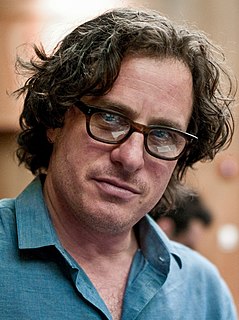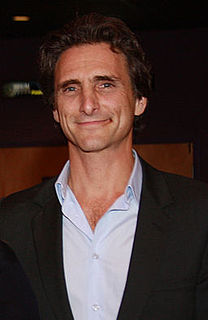A Quote by Davis Guggenheim
Underneath it, in 'An Inconvenient Truth', we talked a lot about the unspoken decisions that people make in their heads.
Quote Topics
Related Quotes
That is the great thing about policing, you do have a lot of responsibility very early and you have got to make decisions, sometimes life and death decisions, very quickly and there is something about putting a uniform on and thinking 'people are looking to me to make decisions and to look after them' that makes you feel capable.
There is usually a clock in our heads regarding decisions we make and the course of our lives. Sometimes this clock is helpful in that it get us to move rather than put off key actions. Other times, it creates us false sense of urgency that can cause us to overreact, lost patience and make poor decisions. In raising this issue in my book, I want people to be aware of the clock in their heads and question whether that clock is helping or hindering the quality of each particular decision.
Al Gore has a hit movie called 'An Inconvenient Truth.' I have an inconvenient truth for him: you're still not the president. ... This past weekend, Al Gore's movie, 'An Inconvenient Truth,' earned more per screen than any film in the country. ... I dare say Gore's movie is the highest grossing PowerPoint presentation in history. ... Global warming: Can we live with it? ... It is time we did something, namely resign ourselves to doing nothing [on screen: Follow Congress' Lead]. ... For instance, when sea levels rise, we'll just build levees [on screen: Worked for New Orleans]
There are very important questions around the climate issue that folks really don't get to. And that's one of the reasons why I've talked about having an honest, open, transparent debate about what do we know, what don't we know, so the American people can be informed and they can make decisions on their own with respect to these issues.
There has been a lot of talk lately about the burdens of the Presidency. Decisions that the President has to make often affect the lives of tens of millions of people around the world, but that does not mean that they should take longer to make. Some men can make decisions and some cannot. Some men fret and delay under criticism. I used to have a saying that applies here, and I note that some people have picked it up, If you cant stand the heat, get out of the kitchen.





































